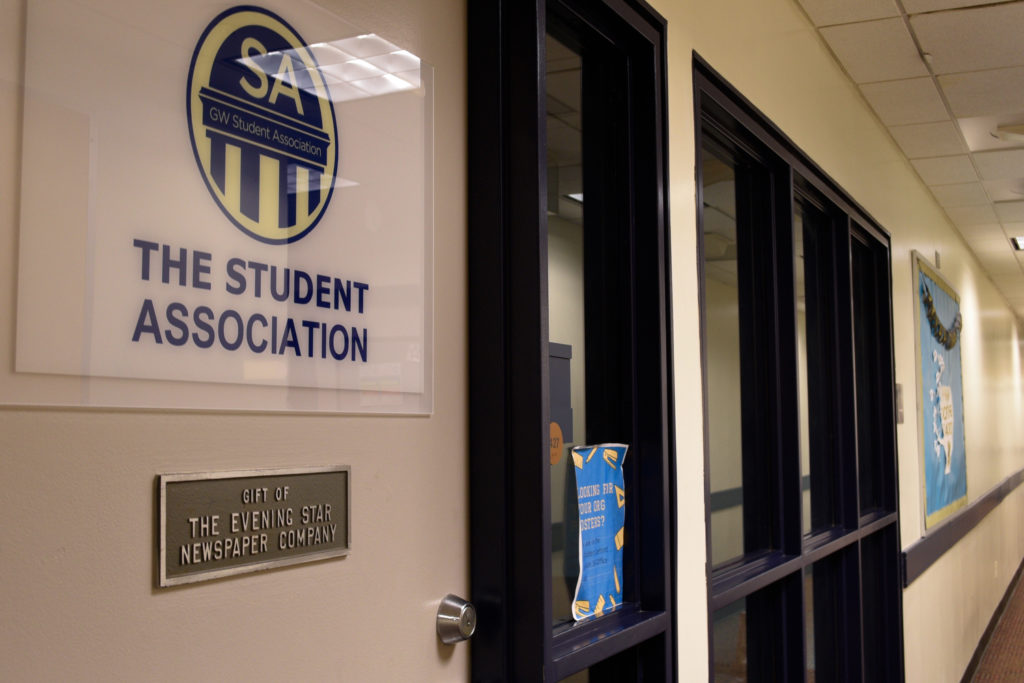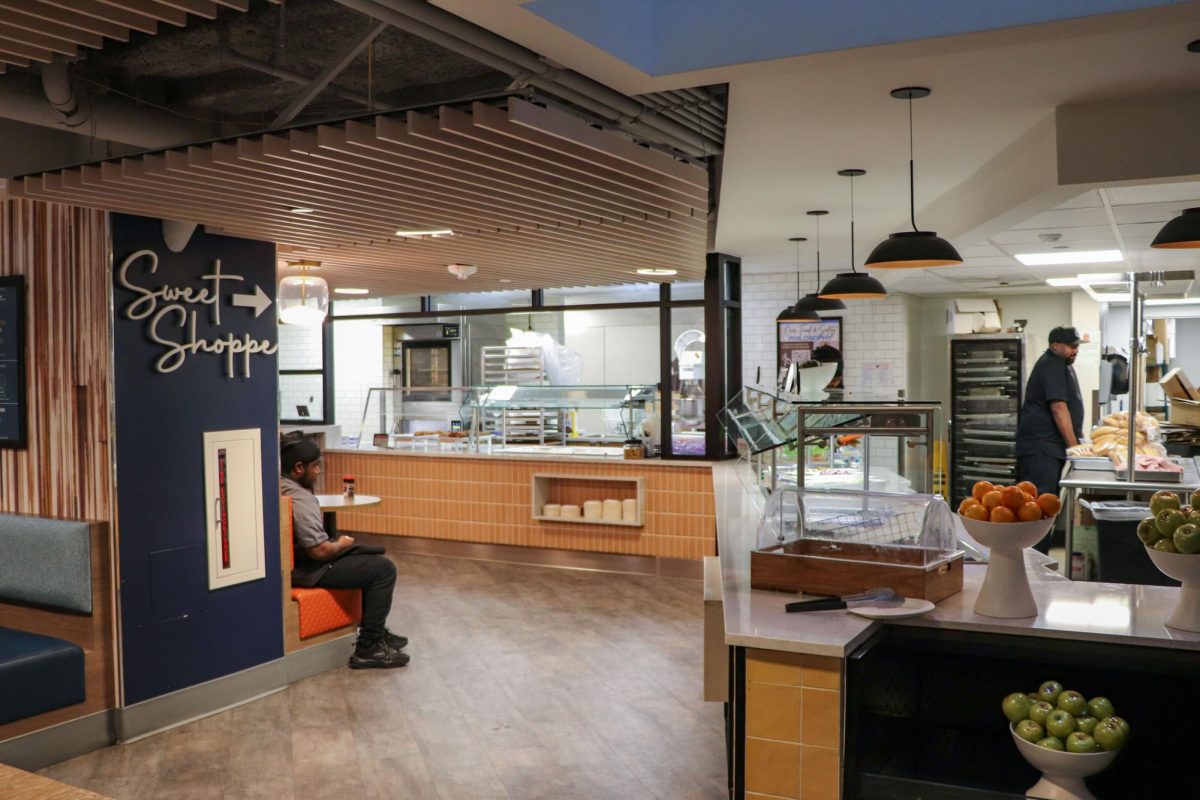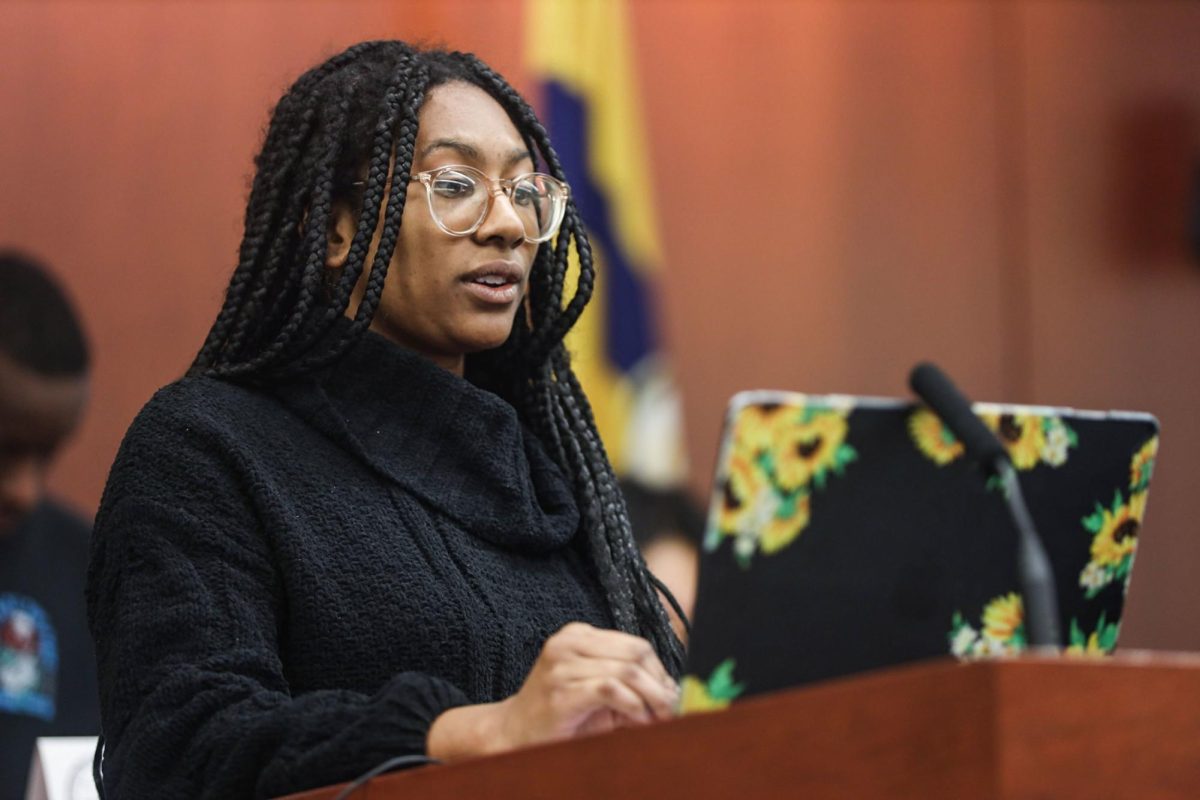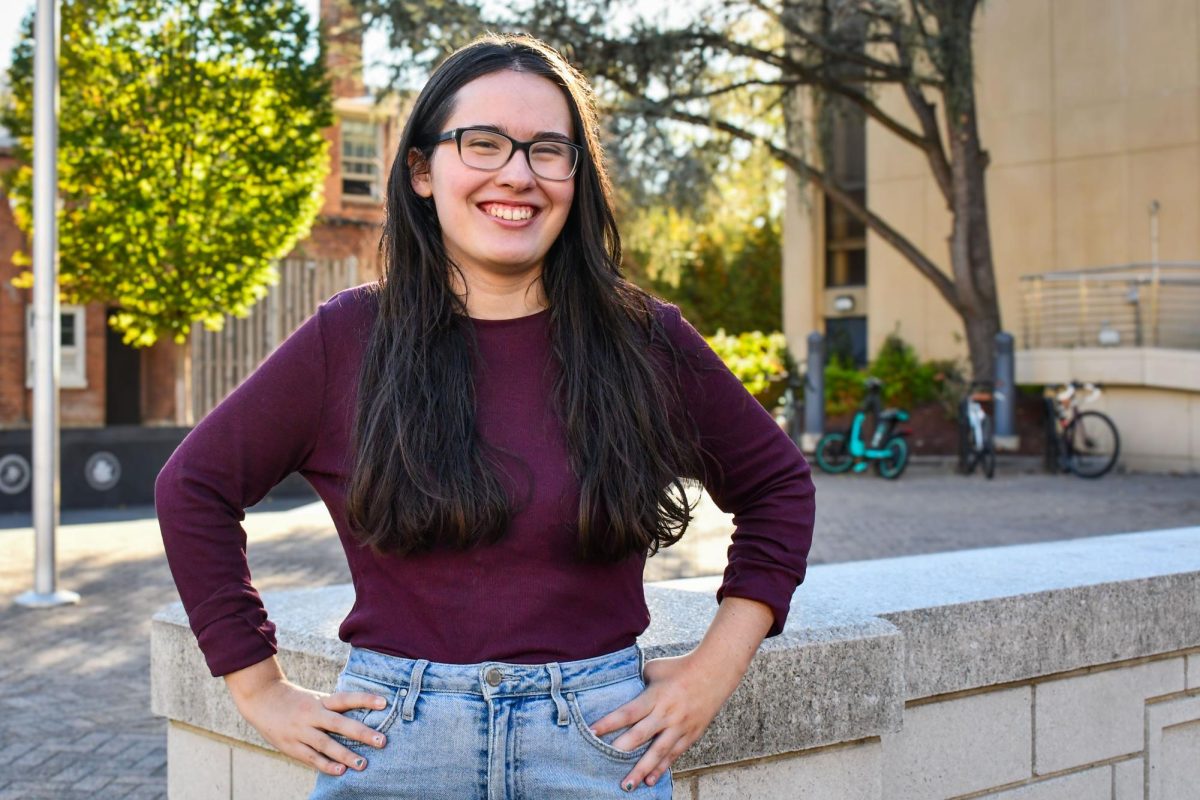If candidates running for the Student Association’s top positions could address just one issue in the next academic year, they say it would be trust.
After the majority of SA cabinet members vacated the body and former SA President Howard Brookins resigned amid sexual misconduct allegations, candidates for SA elections said rebuilding trust between the SA and GW community is a top priority. They said if elected, they would create more opportunities to speak with students informally through town halls and increased engagement with student organizations.
“Creating more ways of having conversations with the students and having conversations with organizations is going to be crucial,” said SA Sen. Charles Aborisade, U-at-Large and a candidate for president. “That’s one way to really build trust – by access, by making it easier for students to contact and have conversations with the SA.”
Aborisade said he will allocate time outside of office hours to communicate with student organizations about any issues the SA could address. SA senators are currently required to hold office hours every week to meet with students, and students can request to speak during public comment at the biweekly senate meetings.
Aborisade said he will routinely communicate with student organizations in addition to holding office hours and town halls to integrate more student voices into the SA.
He said he also plans to create a task force composed of SA members and any interested student organization leaders to increase collaboration and event planning. He said student organizations typically reach out to just one individual in the SA, which leads to advocacy efforts from a few SA members, instead of the full senate.
“What I imagine with the task force is to amplify those concerns and bring them into the hands of the entire SA,” Aborisade said. “It will also provide the senate with a deeper understanding of student concerns since they’ll be more aware of the issues the task force are tackling.”
Hannah Edwards, a candidate for SA president and a former SA vice president for diversity and inclusion, said she thinks students feel that SA leaders carry themselves “above the rest of the student body.” She said this perception stems from a trend of students running for SA executive positions and focusing more on the politics of the SA instead of supporting students.
Edwards said increasing events for students to casually engage with SA members can help establish an “equal relationship” between the SA and the student body. She said hosting weekly conversations with students about SA actions, accomplishments and projects will increase transparency and communication.
“All of those things will help to foster not only transparency but also build community,” Edwards said.
SA Sen. Kate Carpenter, U-at-Large and a candidate for vice president, said Brookins’ “bad relations” with University President Thomas LeBlanc hindered the organization’s ability to work effectively with administrators.
Brookins called for LeBlanc’s resignation before consulting with the senate – an action that senators said damaged the SA’s relationship with officials. Board of Trustees Chair Grace Speights defended LeBlanc, saying the Board had no plans to remove him from his position and criticizing Brookins for his statement.
Carpenter said she will be transparent with officials “from the start” when communicating with administrators about policy initiatives, which she said she has already practiced during her time in the senate.
“We are there to serve as a mediator between the students and the admin, and we need to deliver that message in a professional and transparent and communicative way,” Carpenter said.
SA President Brandon Hill, who is running for another term as president, said throughout his three years in the SA, he has learned “trust is deeply tied to transparency” and the need to facilitate a “stable” SA team. As president, he said he boosted communication between the SA and GW community, updating the SA website, increasing social media presence and “actively” communicating with student organizations.
“If elected to continue this work, I plan to expand this vision, working with a passionate, all-encompassing communications team to advertise the SA and host a space for public feedback,” he said in an email.
He added that the SA’s first-ever director of internal relations will help mitigate possible conflict among SA senators and “strengthen public reputations.” He said the new role comes after senators “expressed high tensions” in the midst of rejecting Hill’s nomination of Carpenter as executive vice president in February.
Christian Zidouemba, a candidate for SA president, said he plans to create a “diverse” cabinet – specifically for increasing international student input – that represents “the entire University” to rebuild trust with students and mitigate the SA’s “bureaucratic” reputation. As he has not previously been a part of the SA, he said he can bring an outside perspective into the body to “unite” the SA and students.
Then-freshman Justin Diamond launched a last-minute campaign in 2019 as a write-in candidate with promises to abolish the SA because he believed the group was an ineffective body to represent students.
“It’s the time that we will represent the voices of all students on our campus by having representation within the SA and for me as an international student and a first-generation student, I think that the Student Association will have someone who understands this struggle and who will fight for them,” Zidouemba said.
SA Sen. Sofia Packer, CCAS-U and a candidate for vice president, said she has spoken with constituents throughout her time in the SA who do not grasp the SA’s current affairs. She said she will host monthly town halls to communicate with students through casual conversations rather than a formal meeting, like the SA meetings.
“The goal is to be more approachable because unless you want to give a public comment at a full senate meeting or go to office hours that not everyone can make, it can be difficult to contact the VP,” Packer said.
Makena Roberts contributed reporting.








